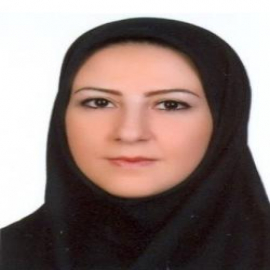| Provider | |
|---|---|
Shadi Farsaei , PhDAssociate Professor
School :School of Pharmacy and Pharmaceutical SciencesDepartment :Department of Clinical Pharmacy and Pharmacy PracticeResearch Center :Isfahan Pharmaceutical Sciences Research Centerwork address :Isfahan, Hezarjarib Ave., Isfahan University of Medical Sciences, Faculty of pharmacy and pharmaceutical sciences, Department of clinical pharmacy and pharmacy practiceEducation :Pharm. D. degree: Isfahan University of medical Sciences Board certified clinical pharmacist specialist: Tehran University of Medical Sciences Relevant Work Experience :Shadi Farsaei was born in Isfahan (Iran) in 1985. She received her Pharm.D and Ph.D. in 2009 and 2013 from the Isfahan and Tehran University of Medical Sciences, respectively. In 2013 she joined the Isfahan University Medical Sciences as an assistant professor in the department of clinical pharmacy and pharmacy practice. His research interests cover several aspects of pharmacotherapy especially pharmacotherapy of critically ill patients. She is the author or coauthor of more than 30 papers in international refereed journals and more than 30 conference contributions. Shadi teaches several courses on pharmacotherapy, pharmacokinetics, and community and hospital pharmacy internship to pharmacy, nursing and medical students. In 2019, she became an associate professor. Professional Memberships & Qualification :Iranian clinical pharmacist association Extra Curricular Activities/ Interest(personal url) :Clinical statistics Grants & Awards :Patents :Presentations & Poster Sessions :Research Experience :1. Comparison of two therapeutic approaches for the management of ventilator-associated pneumonia due to multidrug-resistant Acinetobacter: a randomized clinical trial study. 2. Atorvastatin lipid nanocapsules and gold nanoparticles embedded in injectable thermogelling hydrogel scaffold containing adipose tissue extracellular matrix for myocardial tissue regeneration. 3. Variables associated with gastric acidity in critically ILL patients: An approach to prescribe acid-suppressing medications. 4. Identifying critically ill patients at risk of malnutrition and underfeeding: A prospective study at an academic hospital. 5. Potential role of exogenous melatonin supplement in delirium prevention in critically ill patients: A double-blind randomized pilot study. 6. Henna (Lawsonia inermis) as an Inexpensive Method to Prevent Decubitus Ulcers in Critical Care Units: A Randomized Clinical Trial Medication-use evaluation of caspofungin in intensive care units of Alzahra hospital, Isfahan, Iran, in year 2015. 7. Variables associated with adherence to stress ulcer prophylaxis in patients admitted to the general hospital wards: A prospective study. 8. A double-blinded, placebo-controlled, multicenter clinical trial of N -acetylcysteine for preventing amphotericin B-induced nephrotoxicity. 9. Arterial blood gas analysis and the outcome of treatment in tricyclic antidepressants poisoned patients with benzodiazepine coingestion Effect of ondansetron on prevention of post-induction hypotension in elderly patients undergoing general anesthesia: A randomized, double-blind placebo-controlled clinical trial. 10. Adherence to statin therapy in patients with type 2 diabetes: An important dilemma. 11. Sildenafil in the treatment of pressure ulcer: A randomised clinical trial. 12. Can donepezil facilitate weaning from mechanical ventilation in difficult to wean patients? An interventional pilot study. 13. Increasing the number of adverse drug reactions reporting: The role of clinical pharmacy residents. 14. Insulin adherence in patients with diabetes: Risk factors for injection omission. 15. Glycemic control in the infectious diseases ward; role of clinical pharmacist interventions. 16. Efficacy of topical atorvastatin for the treatment of pressure ulcers: A randomized clinical trial. 17. Prediction of endotracheal intubation outcome in opioid-poisoned patients: A clinical approach to bispectral monitoring. 18. N-acetyl cysteine in prevention of amphotericin- induced electrolytes imbalances: A randomized, double-blinded, placebo-controlled, clinical trial. 19. Medication errors in an emergency department in a large teaching hospital in Tehran. 20. Role of diuretics and lipid formulations in the prevention of amphotericin B-induced nephrotoxicity. 21. Carnitine and sepsis: A review of an old clinical dilemma. 22. Are salt loading and prolonging infusion period effective in prevention of amphotericin B-induced nephrotoxicity? 23. An old drug for a new application: Potential benefits of sildenafil in wound healing. 24. Potential role of statins on wound healing: Review of the literature. 25. Adherence to glyburide and metformin and associated factors in type 2 diabetes in Isfahan, Iran. 26. Role of clinical pharmacists' interventions in detection and prevention of medication errors in a medical ward. 27. Effect of pharmacist-led patient education on glycemic control of type 2 diabetics: A randomized controlled trial. Research Interests :
Teaching Experience :Teaching Interests : |

